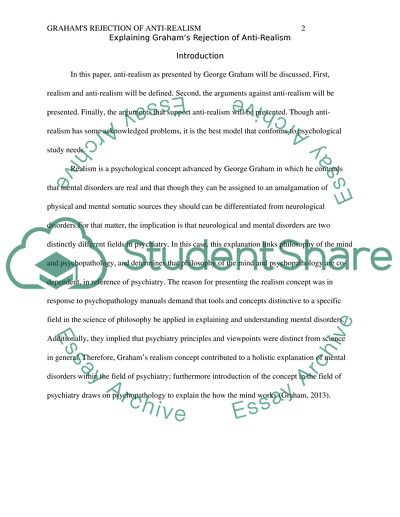Cite this document
(“Explaining Grahams Rejection of Anti-Realism Term Paper”, n.d.)
Explaining Grahams Rejection of Anti-Realism Term Paper. Retrieved from https://studentshare.org/psychology/1650998-explaining-grahams-rejection-of-anti-realism
Explaining Grahams Rejection of Anti-Realism Term Paper. Retrieved from https://studentshare.org/psychology/1650998-explaining-grahams-rejection-of-anti-realism
(Explaining Grahams Rejection of Anti-Realism Term Paper)
Explaining Grahams Rejection of Anti-Realism Term Paper. https://studentshare.org/psychology/1650998-explaining-grahams-rejection-of-anti-realism.
Explaining Grahams Rejection of Anti-Realism Term Paper. https://studentshare.org/psychology/1650998-explaining-grahams-rejection-of-anti-realism.
“Explaining Grahams Rejection of Anti-Realism Term Paper”, n.d. https://studentshare.org/psychology/1650998-explaining-grahams-rejection-of-anti-realism.


